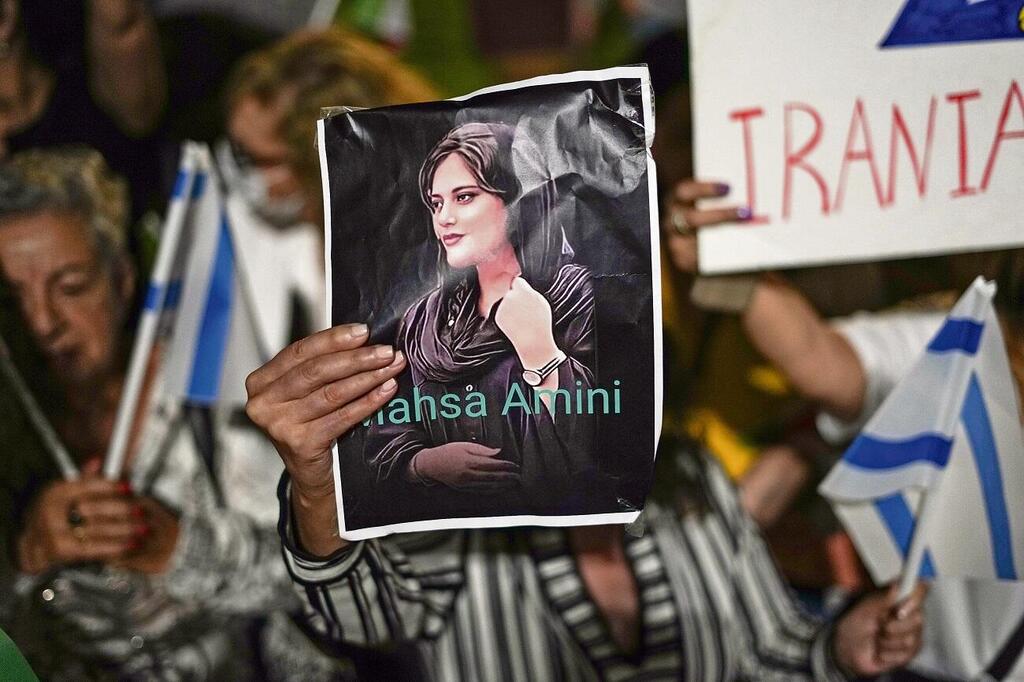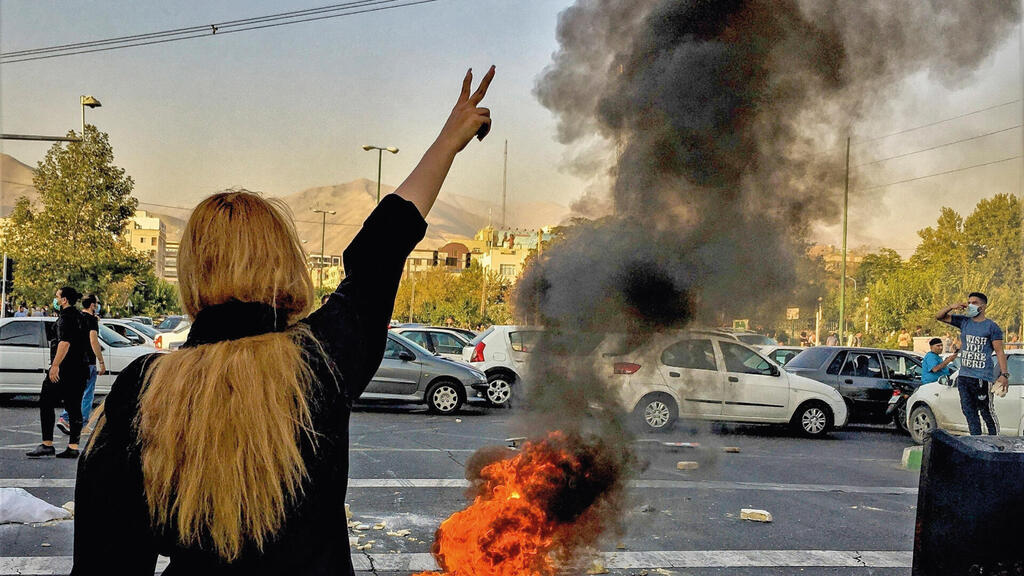Getting your Trinity Audio player ready...
Two years have passed since Mahsa Amini's death at the hands of Iran's morality police. Since then, the winds of change have begun to stir. Iran has elected a new president, Masoud Pezeshkian, following the demise of his predecessor in a helicopter crash. Pezeshkian has pledged that the morality police will no longer harass women seen in public without a hijab. Indeed, more and more women are embracing this newfound freedom, especially in the affluent and trendy districts of major cities.
We've become accustomed to viewing Iran through the lens of news broadcasts—a land governed by an extreme Islamic regime that oppresses women and forces its citizens to endure harsh conditions dictated by Shiite Islamic laws. Additionally, Iranian citizens are burdened by the high cost of living due to Western sanctions and the regime's financial support of terrorist organizations in the Middle East. However, the reality is far more nuanced.
Freedom's yearnings
To an outside observer, Iran might appear as a monolithic entity, its citizens uniformly praying for Israel's destruction. Yet the Islamic Republic is a tapestry of diverse populations, with a growing majority clamoring for lives marked by freedom, secularism, and equality, seeing neither Israel nor the West as threats.
The 2022 protests, sparked by Amini's death, offered a glimpse into the courage of young Iranian women and the "TikTok generation," who boldly took to the streets to protest without fear, paying a steep price for their bravery. Despite the harsh crackdown on these protests, young Iranians have found other creative avenues for dissent—through TikTok and Instagram.
Despite the regime's attempts to curb social media use, Iranians are making their voices heard online. The internet is awash with content illustrating how citizens are engaging with the Western world while creatively expressing their displeasure with the regime's extremism. Some protests are overt, while others are more subtle, but delving into this digital realm reveals a new world, once hidden from view.
As someone born to Iranian immigrant parents, with Persian as my childhood language, my TikTok feed has long been a direct channel to posts from Iran. In just thirty minutes of scrolling, I encounter fresh takes on songs my parents cherished, alongside thousands of posts offering a window into real life in Iran.
Women of courage
Let's begin with women, a sensitive topic in Iran, where the regime forbids the exposure of hair and mandates wearing a hijab in public spaces. Listening to women's singing is also prohibited, though enforcement is less stringent.
Take singer Zahra Samili, for instance. She frequently performs in bustling public spaces, like crowded markets, train stations, and women-only train cars. She sings with her hair uncovered and maintains an Instagram account to share her performances. If not for the crowds that mark these as public spaces in Iran, one might easily imagine her fitting seamlessly into a Western setting. Her attire and hairstyle are thoroughly modern, and there are videos of her singing Amy Winehouse songs alongside well-known Iranian hits.
In recent years, several high-profile Iranian officials have been assassinated, with Qasem Soleimani being the most notable. After such events, regime opponents inside and outside Iran celebrate and even coin new terms, like "Kottlet Shod" (literally: turned into a cutlet).
In line with this term, on the anniversary of Soleimani's assassination, chef Navab Ebrahimi posted a kottlet (cutlet) recipe on TikTok. Naturally, he was immediately arrested for provocative content, and his Instagram and TikTok accounts vanished.
Another anonymous user took it further, posting a video showing Benjamin Netanyahu and Donald Trump making "kottlet" with a McDonald's sign humorously altered to read 'Mc'Kottlet" in the background. The image caption reads, "Opening of the first McKottlet restaurant by chef Benjamin Netanyahu and Donald Trump."
Regarding recent events, following the "beeper attack" on Hezbollah, the Iranian regime's protégé, the internet has been filled mainly with videos from Iranian exiles unafraid of the regime. However, even after Iran's previous attack on Israel, it took several days for citizens to start spreading videos mocking the regime. There's no doubt that this attack will not go unnoticed among the country's youth.
Everyday life
Before TikTok's dominance, Instagram was one of the main platforms for young Iranians to share content and skits depicting everyday life in Iran. Many aim to entertain and garner likes and followers, but some skits subtly critique burning issues and conflicts.
In one such video, a girl goes out with a guy she hides from her father. When they're together, and her father calls, the guy dares her: "If you have the courage, tell your dad you're with me." She does, but presents him as her "trans" friend. It's worth noting that while homosexuality is forbidden in Iran, the regime permits and even funds sex-change operations, claiming these are not considered relations between two men but between a man and a woman.
In the video, it's clear the father has no problem with the "trans" friend, but would struggle to accept a boyfriend before marriage—representing the conflict between the old and new generations and between the regime's restrictions and the youth's desire to progress. From the attire of both actors, one can understand the openness of this generation. Ignoring the hijab (carelessly draped over her head) for a moment, one could easily imagine them living in a Western country.
Iran's Bibi
A conspiracy theory circulating on Iranian social media for several years claims that Benjamin Netanyahu was born in Iran (!). In one video on the topic, a young man takes his followers to the former Jewish neighborhood in Borujerd, linking the neighborhood synagogue (identified by the Star of David, which he mistakenly calls "the star of the Jews") to Benjamin Netanyahu.
The young man even invites viewers to "imagine" Netanyahu running through these alleys as a child. The context seems absurd, with nothing to substantiate the theory, but there are many such videos, including interviews with elderly individuals claiming Netanyahu was their neighbor.
Regardless, the best way to learn about life and citizens in Iran and their aspirations for freedom is surprisingly through social media, where one can read between the lines about life in this secluded country. We can only hope that the ayatollah regime will come to an end, and perhaps one day we can even embark on a culinary journey through Iran.




